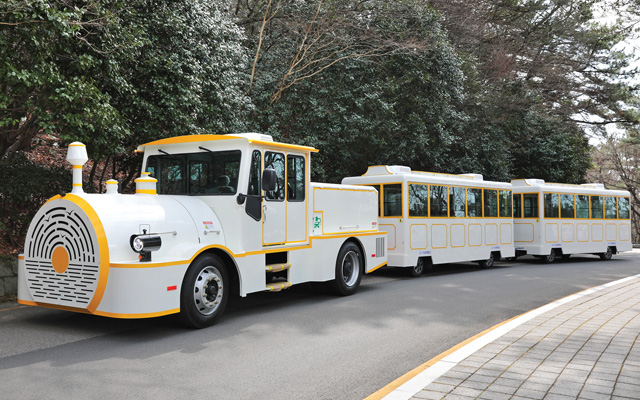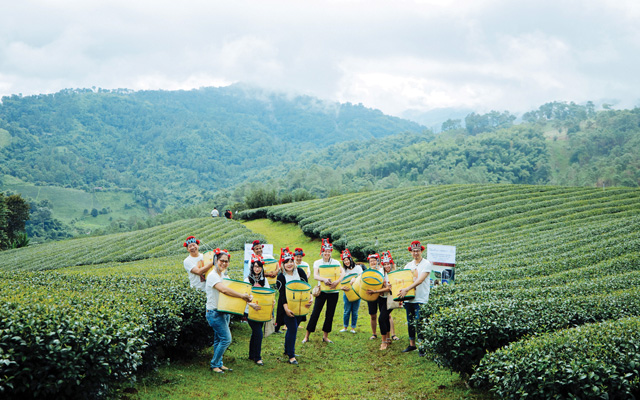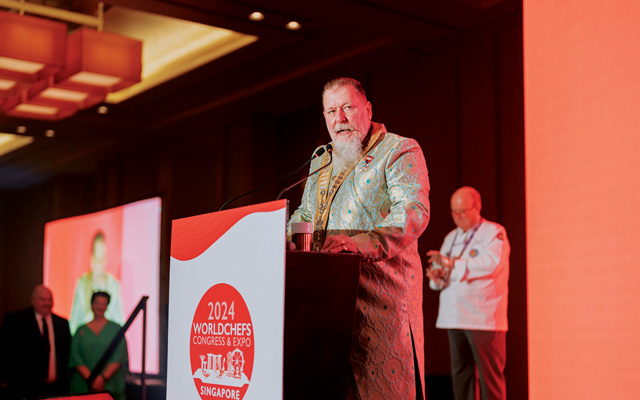From constructing energy-efficient buildings to mindful waste management, here are five Asia-Pacific cities that are championing environmental sustainability and reshaping the landscape for business events
Busan, South Korea
Busan plans to achieve carbon neutrality by 2050, a commitment formalised in the city’s 1st Basic Plan for Carbon Neutrality and Green Growth, launched in April 2024.
As an immediate step, Busan is targeting a 45 per cent reduction in greenhouse gas emissions by 2030 compared to 2018 levels, while simultaneously advancing its 3rd Climate Crisis Adaptation Measures. This strategy involves expanding public sector emissions targets, and funding carbon reduction tech.

The city is also expanding its green infrastructure with the 300-ri Urban Galmaetgil Trail (82.3km, 11 routes) and the Green Carpet project (58 sites, 31.7 hectares), linking 15-minute living zones to improve quality of life. Broader sustainability efforts include the introduction of an eco-friendly train in Taejongdae Park, and the repurposing of vacant older houses into cafes and accommodations in less populated areas (known as the Modi House project).
Busan has also established ESG (Environmental, Social, and Governance) guidelines for business events held in the city, focusing on reducing waste and carbon emissions.
The Busan MICE Alliance – comprising venues like BEXCO (Busan Exhibition and Convention Center), hotels like the Westin Josun Busan, and PCOs/PEOs – promotes these ESG guidelines to its members.
In January 2025, BEXCO released its 2024 Sustainability Management Report, becoming the first convention centre in South Korea to align with the Global Reporting Initiative (GRI) guidelines, an international standard for sustainability reporting. It is also verified by a third-party audit, ensuring the report’s credibility.
The report highlights BEXCO’s ongoing ESG efforts, the progress made, and its goal of sharing these achievements with the local community and stakeholders.
Under its ESG vision of Building a Sustainable Future with Customers, BEXCO outlines efforts to achieve targets such as creating a low-carbon, eco-friendly centre, fostering cooperative and sustainable value creation, and leading a transparent and ethical society.
During the 2024 Busan International Travel Mart held at BEXCO, a zero-waste approach implemented serves as a blueprint for future events in the city. Key measures included encouraging personal tumblers and providing water dispensers, offering reusable cups with collection points, establishing comprehensive recycling stations with waste tracking, enforcing strict waste reduction plans for exhibition materials, and primarily using QR codes for information to minimise paper. – Rachel AJ Lee
Bangkok, Thailand
Bangkok is setting an ambitious example by embedding sustainability into the very fabric of its business events strategy.
Spearheading this transformation is the Thailand Convention and Exhibition Bureau (TCEB), which is sharpening its sustainability strategy for 2025 and positioning the country as a top choice for event organisers seeking responsible, ESG-aligned destinations.

Key to this approach is a shift from sustainability to regenerative sustainability, where TCEB aims to create meetings that go beyond minimising harm to actively generating positive environmental, social, and personal impact.
Nooch Homrossukhon, director of TCEB’s Corporate Image & Communications Department, noted that TCEB’s social impact in FY2024 surged 39.34 per cent, reaching 10.6 billion Thai baht (US$305 million), as a result of intensified focus on measuring both positive and negative outcomes of business events.
“Among the positive impacts were personal, professional & social impacts, as well as brand and reputation gains. But we also considered the negative impacts that need to be offset, such as travel emissions, energy & waste, and quality-of-life impacts,” she shared, highlighting that technology and data are critical enablers for responsible events.
This holistic perspective was merged into TCEB’s MEET WELL strategy, unveiled at AIME 2025.
The campaign’s four pillars – Wellness, Well-Connected, Well-Balanced, and Heartfelt Welcome – reflect global insights, such as the Social Rewilding trend highlighted by Accenture’s Life Trends 2025 report – which points to consumers’ growing desire to disconnect from digital overload and seek simplicity, authenticity and deeper real-world connections, as well as broader trends which show guests prioritizing wellness & sustainability.
Nooch added that mitigating, tracking, and reducing carbon emissions is now a major focus for the bureau.
The bureau put many of these ideas into practice at its recent showcase, MICE Day 2025 – Unfolding Journey, at IMPACT Muang Thong Thani. The event was designed to be carbon neutral, with carbon footprint avoidance, food waste management, and inclusive event design as focal points.
Suratsa Thongmee, director of TCEB’s Central Regional Office, highlighted TCEB’s long-standing collaboration with BMA in championing sustainability across Bangkok’s events ecosystem.
“TCEB’s policy has always been promoting the sustainable organisation of MICE events. That’s why we’ve been working collaboratively to build a knowledge base and have also provided sustainable MICE event guidelines to the Bangkok Metropolitan Administration,” noted Suratsa.
The guide, titled Sustainability Events Basic Guidelines – tailored to business events stakeholders and spanning pre-event planning to post-event evaluation – is available from TCEB’s MICE Capabilities department.
“As a result, any events organised or supported by BMA – or jointly executed with TCEB – all follow sustainable event practices. Most importantly, we can measure the carbon footprint generated by each event. Many of our projects already incorporate this,” shared Suratsa.
She also highlighted the BMA’s Greener Bangkok initiative – an expansive project with eight action plans aimed at reshaping the capital’s environmental landscape. These include measures to reduce waste, improve air quality, expand green spaces and walkability, enhance energy efficiency, and modernise wastewater and transportation systems.
Joint initiatives existing between the BMA & TCEB to address environmental challenges are the BMA MICE routing initiative, which includes projects such as Bespoke in BKK – a Bangkok-Ayutthaya city-pairing MICE route made possible by a train ride and Be the Best in Thailand, which promotes Bangkok as a luxury and sustainable business events destination. – Anne Somanas
Singapore
Singapore’s Garden City vision, established in 1967 by then prime minister Lee Kuan Yew, has today blossomed into something much more than just lush greenery and clean surroundings.
The country set out on a nationwide sustainable development movement in 2021 through the Singapore Green Plan 2030, which has concrete targets to strengthen Singapore’s commitments under the United Nations 2030 Sustainable Development Agenda and Paris Agreement, and bring the country closer to its net-zero emissions goal by 2050.

The Singapore Green Plan 2030 as well as the United Nations Sustainable Development Goals, in turn, guide the MICE Sustainability Roadmap and the Hotel Sustainability Roadmap, which were launched by the Singapore Tourism Board (STB) in 2022.
In March 2024, STB rolled out a global marketing campaign to affirm Singapore’s position as the World’s Best MICE City. The campaign film showcased the strengths that Singapore offers, such as its accessibility to new markets, trust, safety, innovation, and sustainability.
And as of March 2025, 100 per cent of all purpose-built MICE venues (such as Resorts World Convention Centre, Sands Expo and Convention Centres, and Singapore Expo); 80 per cent of members in the Singapore Association of Convention and Exhibition Organizers and Suppliers; and 60 per cent of hotel rooms are on track to attain sustainability certifications by the end of the year.
A Decarbonisation Playbook for Tourism Businesses was also introduced in March 2025 to support the industry in making this green transition. This is in addition to STB pioneering a MICE Venue Carbon Baseline last year to minimise carbon emissions for business events.
Sustainability-minded association event organisers are further supported by the Legacy Toolkit, a comprehensive resource designed to help them organise impactful and meaningful gatherings.
The Legacy Toolkit was utilised by the World Association of Chefs (WAC) and Singapore Chefs Association (SCA) when both came together with World Chefs Without Borders and the National Kidney Foundation Singapore to organise the National Kidney Foundation 55 Charity Gala Dinner. The dinner coincided with the 40th edition of the Worldchefs Congress & Expo last year, allowing WAC and SCA to achieve their community service objectives and raise S$1.8 million (US$1.4 million) in funding for life-saving dialysis treatments and holistic care for over 5,700 kidney failure patients in Singapore. – Karen Yue





















